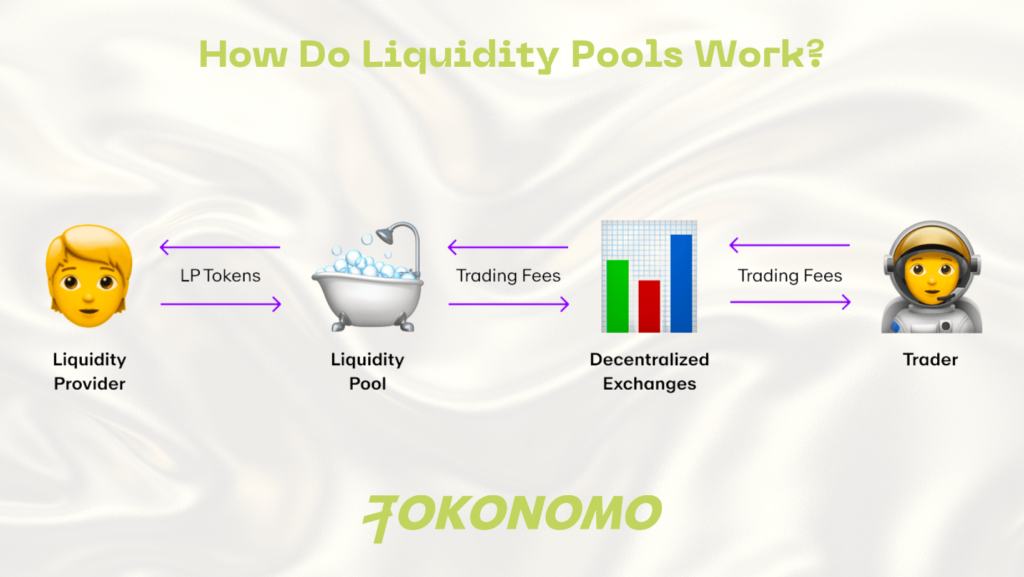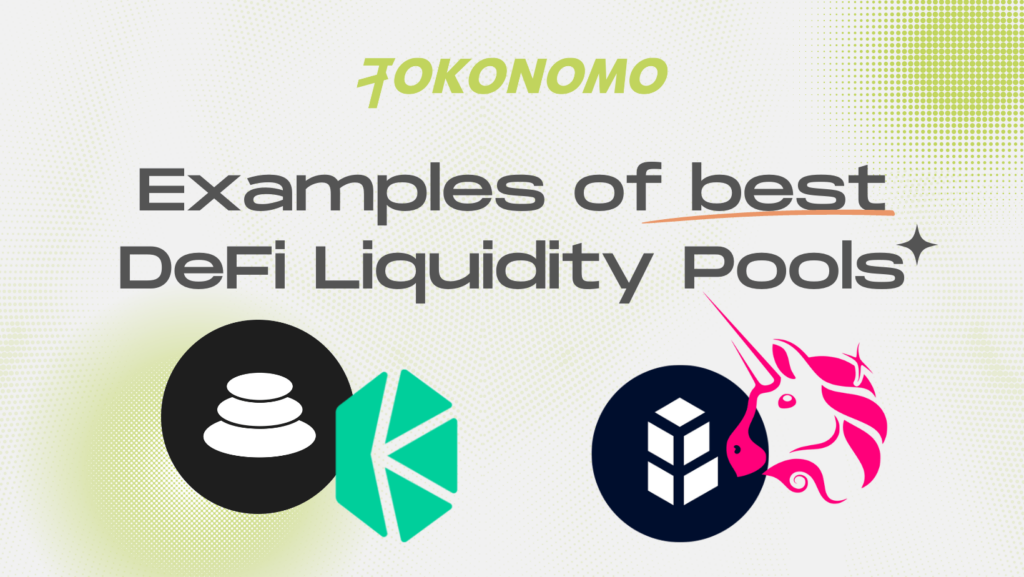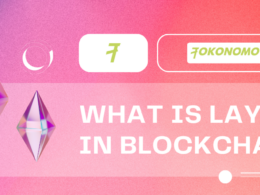Definition of DEX Liquidity Pool
A DEX liquidity pool is a pool of funds that is used to facilitate the buying and selling of cryptocurrency on a decentralized exchange (DEX). DEXs are a type of cryptocurrency exchange that operates without a central authority, allowing users to buy and sell cryptocurrencies directly with each other.
What Is a Liquidity Pool?
A liquidity pool is a collection of assets that can be bought and sold easily, allowing market participants to trade without having to find a counterparty. In the case of DEX liquidity pools, the assets in the pool are typically various cryptocurrencies.
How Do Liquidity Pools Work?
DEX liquidity pools work by allowing users to contribute their cryptocurrency to the pool in exchange for a share of the pool’s assets. These assets are then made available for others to trade on the DEX.
For example, if a user wants to sell their Ethereum on a DEX, they can first contribute it to the DEX’s Ethereum liquidity pool. They will then receive a share of the pool’s assets in return. When someone else wants to buy Ethereum on the DEX, they can do so by purchasing a share of the Ethereum liquidity pool. The DEX will then facilitate the trade by exchanging the buyer’s funds for the seller’s share of the pool.


Benefits of Liquidity Pools
Liquidity pools have a number of benefits for both DEXs and their users. For DEXs, liquidity pools can help to increase trading volume and make the exchange more attractive to potential users. For users, liquidity pools provide a way to earn passive income by contributing their assets to the pool and receiving a share of the trading fees generated by the pool.
Types of Liquidity Pools
There are several types of liquidity pools that can be found on DEXs, including:
- Automated Market Maker (AMM) pools: These pools use algorithmic pricing models to determine the price of assets being traded. AMM pools allow users to buy and sell assets without the need for a counterparty, making them an attractive option for those who want to trade quickly and easily.
- Order book pools: These pools allow users to place orders to buy or sell assets at a specific price. When someone else places a matching order, the trade is executed. Order book pools are typically used for more established assets with a larger number of market participants.
- Hybrid pools: As the name suggests, these pools are a combination of AMM and order book pools. They may use algorithmic pricing to facilitate some trades while also allowing users to place orders for specific prices.
Some Examples of best DeFi Liquidity Pools in 2023


There are many liquidity pools available on decentralized exchanges, and it can be difficult to determine which ones are the best. Here are a few examples of liquidity pools that have gained a reputation for being high-quality:
- Uniswap: Uniswap is a popular decentralized exchange that uses automated market maker (AMM) pools to facilitate trades. Its liquidity pools are known for having high liquidity and low spreads, making it a good option for those looking to trade quickly and efficiently.
- Balancer: Balancer is another decentralized exchange that uses AMM pools to facilitate trades. In addition to offering high liquidity and low spreads, it also allows users to create their own custom pools by choosing the assets and weightings they want.
- Kyber Network: Kyber Network is a decentralized exchange that allows users to trade a wide range of assets, including cryptocurrencies, stablecoins, and ERC-20 tokens. Its liquidity pools are known for their high liquidity and fast transaction speeds, making it a popular choice for traders.
- Bancor: Bancor is a decentralized exchange that uses hybrid liquidity pools, combining elements of AMM and order book pools. Its liquidity pools are known for their high liquidity and low spreads, as well as the ability to trade a wide range of assets.
It’s important to keep in mind that liquidity pools can vary in quality, and it’s always a good idea to do your own research before deciding which one to use. Factors to consider include liquidity, spreads, fees, and the assets available for trading.
How can you make money from liquidity pools?
There are a few ways that users can make money from liquidity pools:
- Earning trading fees: By contributing assets to a liquidity pool, users can earn a share of the trading fees generated by the pool. These fees are typically a small percentage of the value of the trade and are paid to the pool’s contributors in proportion to their share of the pool.
- Earning interest: Some liquidity pools may offer users the ability to earn interest on their assets by holding them in the pool for a certain period of time. This can be an attractive option for users who want to earn passive income from their cryptocurrency holdings.
- Appreciating assets: As the value of the assets in a liquidity pool increases, the value of a user’s share of the pool will also increase. This can provide users with the opportunity to earn returns on their investments.
Conclusion
In conclusion, DEX liquidity pools are an important component of decentralized exchanges, allowing users to trade cryptocurrencies without the need for a central authority. These pools work by allowing users to contribute their assets in exchange for a share of the pool’s assets, which are then made available for others to trade. Liquidity pools have a number of benefits for both DEXs and their users, including increased trading volume, the ability to earn passive income, and the potential for returns on investments. There are several types of liquidity pools that can be found on DEXs, including AMM pools, order book pools, and hybrid pools. Users can make money from liquidity pools by earning trading fees, earning interest, or through the appreciation of assets in the pool.











